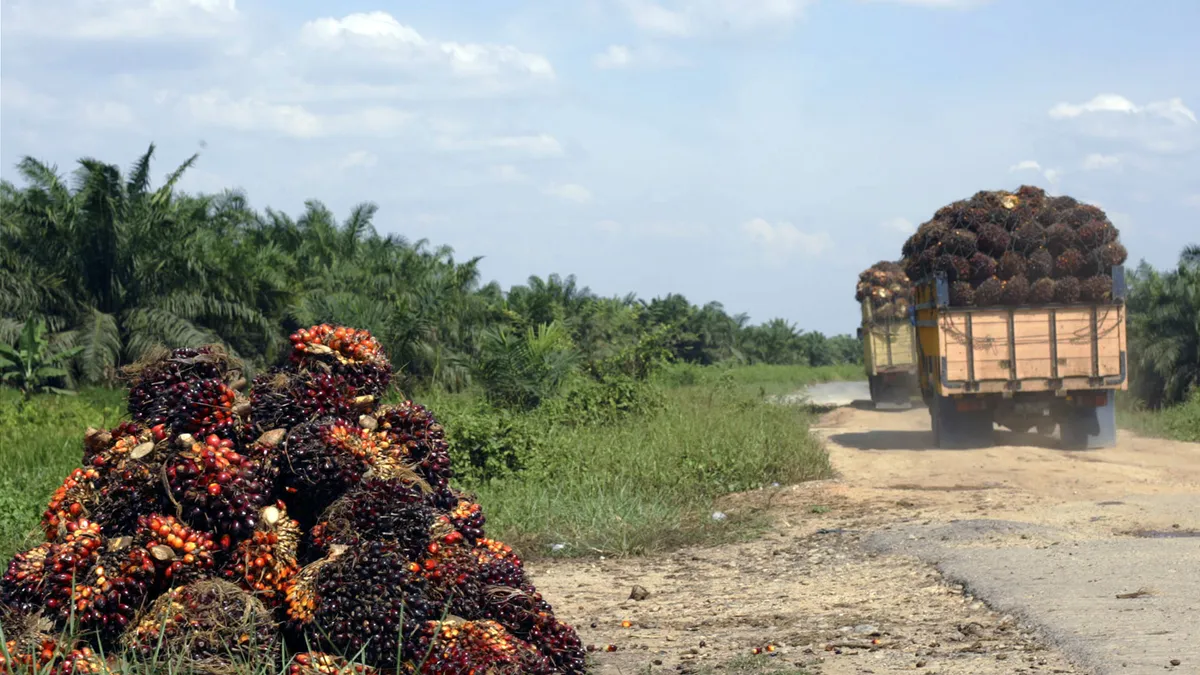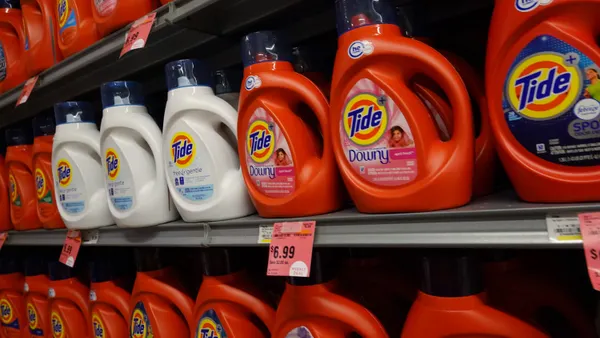UPDATE: May 19, 2022: Indonesia announced it is lifting its ban on exports of palm oil on Monday, May 23 ending a move that pressured edible oil prices worldwide.
The Indonesian government implemented the ban on April 28 in a attempt to lower high domestic prices for the popular ingredient. While the government did not reach its target, President Joko Widodo cited price improvements and the industry’s 17 million workers in lifting the ban, Bloomberg reported.
Several analysts had expected the ban to be short-term because Indonesia’s production would quickly overwhelm local storage capacity. Gro Intelligence, an agricultural insights firm, said in a research note that palm oil prices are up 36% compared to this same time last year, although the lifting of the ban “will bring relief” to the global market. Futures prices “should continue to see downward pressure leading up to November on higher seasonal production in both Indonesia and Malaysia, the No. 2 producer and exporter,” Gro Intelligence said.
UPDATE: April 27, 2022: Indonesia will include crude and refined palm oil in its export ban set to take effect at midnight local time, the country’s chief economic minister said on Wednesday. It initially said it would only halt shipments of refined, bleached and deodorized palm olein.
In an email, Paul Hughes, chief agricultural economist and director of research with S&P Global Commodities Insights, Agribusiness, told Food Dive that “it is our belief the complete ceasing of exports cannot last long.
“Indonesia consumes only about 1/3 of [its] production, so storage will fill up quickly,” he noted. “Also, the exportation of palm oil is too important for the industry and Indonesia’s overall economy. However, even a brief stoppage will be challenging for the world market to handle under the current circumstances.”
Dive Brief:
- Indonesia will ban certain palm oil exports beginning April 28, a move that has already caused the prices of oil substitutes to whipsaw.
- The country, which is the world's largest exporter of the commodity, initially banned all palm oil exports. However, government officials said Monday that the ban would apply to bulk and packaged refined, bleached and deodorized (RBD) palm olein, according to Bloomberg.
- Indonesia said the export ban would continue until domestic availability and affordability of the cooking oil improves. The move comes as the broader edible oil market has been hit by a series of inflationary events, including poor weather and labor shortages in key crop growing countries, rising global demand and the war in Ukraine.
Dive Insight:
RBD palm olein is a processed version of palm oil that makes up to 40% of Indonesia's total palm oil exports, according to Bloomberg. The export ban on the product, typically used as a cooking oil, ratchets up Indonesia's efforts to address a crisis of rising inflation and supply shortages in the country.
In January, Indonesia issued a short-term mandate requiring domestic producers of palm oil to set aside one-fifth of their shipments for local buyers, and implemented a retail price cap at home. The weight of global demand shifted to countries like Malaysia, the second-largest producer of palm oil, and to alternatives like soybean oil.
Supplies of soybean oil, however, have been pressured by a drought in Argentina, the top global exporter. In its own protectionist move, the South American country raised export taxes on soybean oil in March and briefly suspended exports after Russia invaded Ukraine.
The war in Ukraine has also compromised a key source of sunflower oil. Ukraine and Russia produce 80% of the ingredient.
In April, the Food Agriculture Organization of the United Nations reported its vegetable price index rose more than 23% in March to hit a new record, pressured by higher prices for palm, soy, sunflower and rapeseed oils. A basket of the most commonly used vegetable oils by food manufacturers in the U.S. currently costs 41% more than a year ago, with prices 151% higher over the past two years, according to an analysis by Gro Intelligence,
Several of the largest food manufacturers are major buyers of palm oil. Mondelēz International, maker of Oreo and Chips Ahoy cookies and Ritz crackers, alone makes up for 0.5% of global palm oil consumption, according to its website, and sources most of its supply from Indonesia and Malaysia.
Upon news of the export ban, prices for soybean oil, a popular substitute, hit a record high on the Chicago Board of Trade on Friday, only to reverse course after reports of a narrowed focus on RBD palm olein over the weekend.
Indonesia's export ban will further complicate CPGs' efforts to keep food prices low, said Ramsey Baghdadi, a consumer analyst with research firm GlobalData.
"Manufacturers will need to focus on price promotion strategies to keep prices down and maintain a good relationship with customers," he said.
















